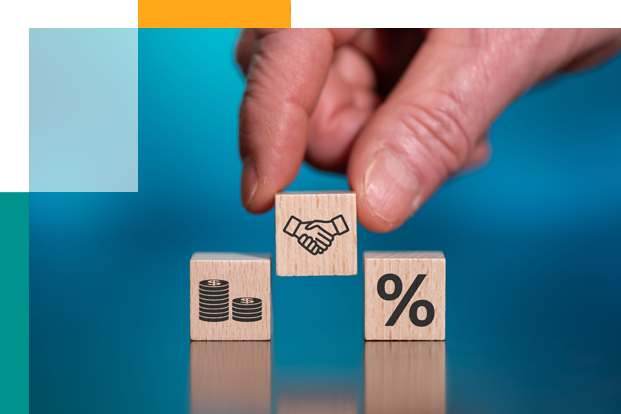SBA 7a loan vs SBA 504 Loans: Which One Works Best for Your Business?

SBA 7a loans vs 504 loans are small-business loans insured by the United States government and made available by financial institutions, most notably banks. SBA 504 loans fund the purchase or rehabilitation of real estate. Working capital can be given to businesses through SBA 7a loans.
An SBA 7a loan is ideal if you require financing for anything other than purchasing real estate or equipment. They can be used for a much more extensive range of objectives, such as working capital and company growth. Although real estate development could be a part of that, it is not required. This article will teach us all we need to know about 504 and 7a loans. We will also see which one works best for you.
SBA 7a loan vs 504 Comparison
There are a number of small business loan options available, and many people consider the SBA 7a loan vs 504. The SBA 504 loan is frequently the best option if you’re planning to buy commercial real estate or large machinery or equipment. The SBA 7A loan can be a better choice if your main objective is generating working capital or financing a business purchase.
An SBA 504 loan can be used to fund the purchase of a building, the construction of new facilities or modifications to existing ones, and the acquisition of large machinery and equipment. An SBA 7a loan can be used for either short-or long-term working capital or to buy an existing firm, restructure existing business debt, or purchase equipment, supplies, and furniture.
What Are the Differences Between an SBA 7a Loan vs 504?
Financing for owner-occupied commercial real estate comes via SBA 504 loans. The financing amounts for these loans range from $125,000 to $20 million, and the small business owner is only required to put down 10% of the total amount. SBA 7a loans, on the other hand, can be utilized to purchase a firm or raise operating capital. The maximum loan amount for an SBA 7a loan is $5 million.
The interest rate on a 504 loan is fixed, and no further collateral is needed. Furthermore, fees are cheaper than with a 7a loan. Generally, 504 loans are amortized over 20 years, but they started accepting requests for 25-year term SBA 504 loans in April 2018. However, a 7a loan’s interest rate may be flexible and linked to the prime rate. A 90% collateral requirement exists. These loans have a 25-year amortization period.
What’s the Common Situation Where an SBA 504 Loan Is a Better Choice?
An SBA 504 loan may be the most practical choice when there are numerous partners, and one partner has greater assets and home equity than the other. Similarly, a 7a loan takes a lien on a property or any other external collateral, whereas an SBA 504 loan does not. In this case, using a 7a loan would be unfair to the partner with greater assets.
The scale of the project tends to increase the fees for 7a loans. For instance, the guarantee charge is 3.5 percent for a loan exceeding $700,000 and a project up to $1 million. The rate increases to 3.75 percent once the project is worth more than $1 million. When the loan amount rises, the associated fees for a 504 loan remain constant as a percentage.
The costs for a 7a loan for a $1.25 million commercial real estate project can reach$27,891, while the costs for a 504 loan are slightly over $13,306. Furthermore, the $1.25 million 7a loan would need a $187,500 down payment, unlike the $125,000 down payment necessary for the SBA 504 loan. If the property were financed with a 504 loan, in this case, the borrower would save $77,085 in cash out of pocket.
Why Is the SBA 7a Loan vs 504 Question Common Among Prospective Borrowers?
When financing commercial real estate, most borrowers go to their bank first. Therefore, they might only be given a 7a option. They begin learning about the 504 programs after they commence their inquiry. Prospective borrowers frequently inquire about the differences between the 504 and 7a loan programs because they are two of the SBA’s most well-known and accessible lending choices.
In What Situation Would SBA 7a Loan Be a Better Fit?
An SBA 7a loan might be better when business and real estate purchases are made together, and operational cash is required. They can all be combined into a single SBA 7A loan. SBA regulations prohibit using 504 loans to fund a company acquisition or for working capital.
Can You Use a 7a to Buy Commercial Real Estate?
Yes, you can. Regarding the SBA guarantee and SBA costs, the 7a option would be more expensive. However, banks are not permitted to finance those expenses using the loan proceeds. Therefore, 7a loans have a substantially higher upfront cost.
For example, the cost difference is significant for projects where the total cost of the property and tenant improvements exceeds $775,000 in these cases. In this instance, compared to 2.9 percent for the 7a loan, the charge for the 504 loans would be 1.2% of the entire loan.
Furthermore, there is typically a lien on the house, business (UCC), or both if the 7a loan is financed at a loan-to-value (LTV) of 90%. There are no liens required on primary residences for SBA 504 loans.
Can You Clear up Any Top Misconceptions About an SBA 504 Program?
Compared to SBA 7a loans, borrowers frequently believe that 504 loans are more challenging to understand and qualify for. They typically also think that the prepayment penalty for 504 loans is onerous. Those are all misconceptions. The 504 loan financing process is comparable to a bank loan.
Furthermore, because the program requires outside collateral, it may take longer for a 7a applicant to be approved. This is optional for 504 borrowers. Lastly, the 504 prepayment penalty is less expensive than the 7a prepayment amount and costs. The exception is when the 504 borrower prepays within a year.
Conclusion
When deciding between SBA 7a loan vs 504, it is important to carefully analyze your business’s particular requirements. Although both loan programs have advantages like low-interest rates and government guarantees, they differ significantly in terms of eligibility, loan amount, interest rates, and fees.
To choose the appropriate loan program for your company, it is crucial to consult a lender or financial expert, and Finance Lobby is the place to get the best lenders. When deciding, consider your financial condition, business goals, and how the loan will be used. Your business may get the funding it needs to expand and succeed with the right loan program in place.
Finance Lobby is the top commercial real estate financing marketplace. We are revolutionizing the commercial real estate financing industry by streamlining deals. We connect lenders and borrowers based on the borrower’s specific needs and the lender’s requirements. Sign up now to get the best deals.


